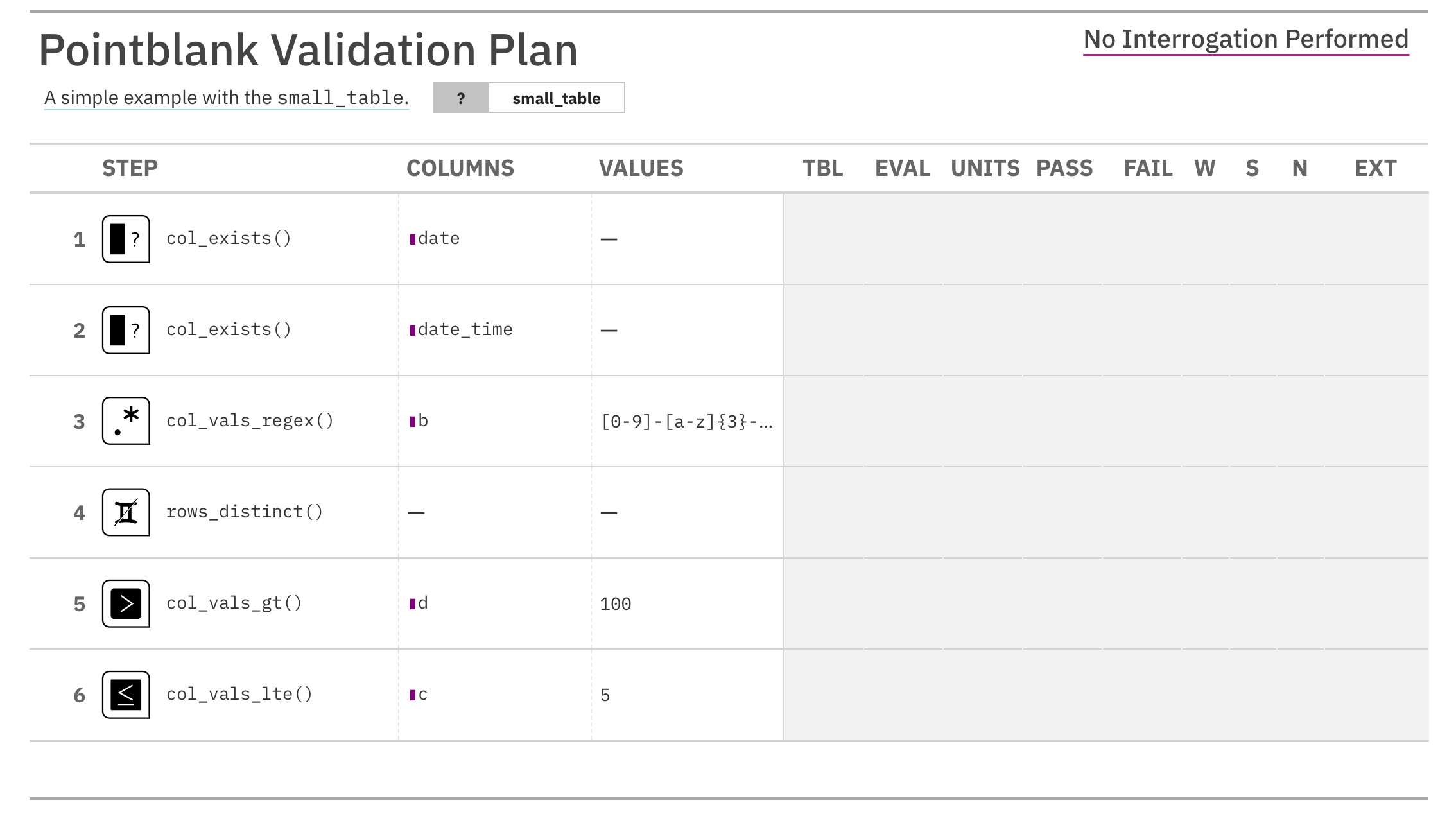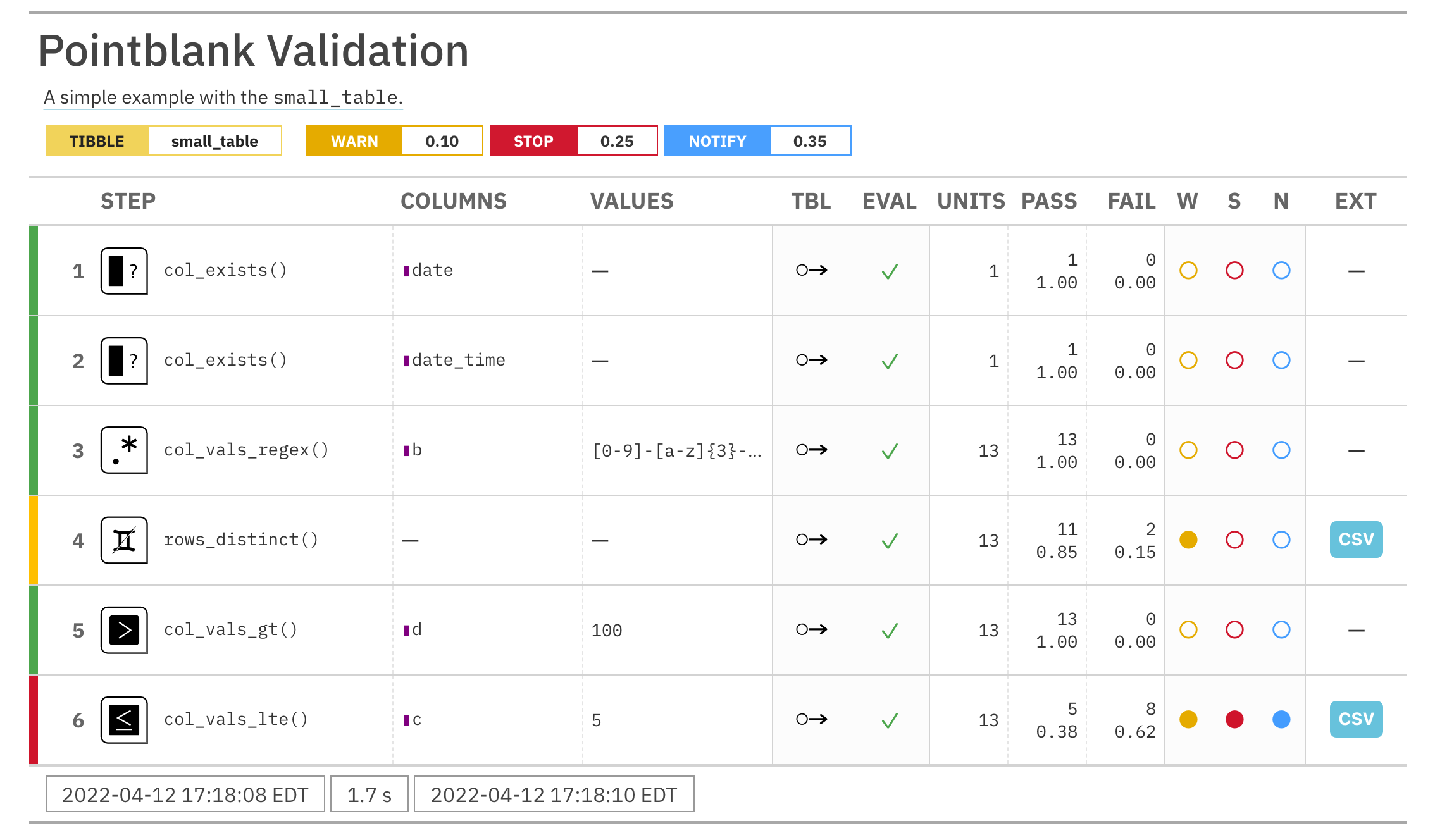Get an agent from pointblank YAML and interrogate()
Source: R/yaml_read_agent.R
yaml_agent_interrogate.RdThe yaml_agent_interrogate() function operates much like the
yaml_read_agent() function (reading a pointblank YAML file and
generating an agent with a validation plan in place). The key difference is
that this function takes things a step further and interrogates the target
table (defined by table-prep formula that is required in the YAML file). The
additional auto-invocation of interrogate() uses the default options of
that function. As with yaml_read_agent() the agent is returned except, this
time, it has intel from the interrogation.
Examples
There's a YAML file available in the pointblank package that's also
called "agent-small_table.yml". The path for it can be accessed through
system.file():
yml_file_path <-
system.file(
"yaml", "agent-small_table.yml",
package = "pointblank"
)The YAML file can be read as an agent with a pre-existing validation plan by
using the yaml_read_agent() function.
agent <- yaml_read_agent(filename = yml_file_path)
agent
This particular agent is using ~ tbl_source("small_table", "tbl_store.yml")
to source the table-prep from a YAML file that holds a table store (can be
seen using yaml_agent_string(agent = agent)). Let's put that file in the
working directory (the pointblank package has the corresponding YAML
file):
yml_tbl_store_path <-
system.file(
"yaml", "tbl_store.yml",
package = "pointblank"
)
file.copy(from = yml_tbl_store_path, to = ".")As can be seen from the validation report, no interrogation was yet
performed. Saving an agent to YAML will remove any traces of interrogation
data and serve as a plan for a new interrogation on the same target table. We
can either follow this up with with interrogate() and get an agent with
intel, or, we can interrogate directly from the YAML file with
yaml_agent_interrogate():
agent <- yaml_agent_interrogate(filename = yml_file_path)
agent
See also
Other pointblank YAML:
yaml_agent_show_exprs(),
yaml_agent_string(),
yaml_exec(),
yaml_informant_incorporate(),
yaml_read_agent(),
yaml_read_informant(),
yaml_write()